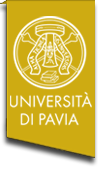We Study Molecular Recognition
Signal transduction pathways represent an accurate, complex and intricate way
of transporting messages between neighboring cells. The accurate recognition of
soluble, extracellular ligands by complex receptor assemblies determines
multiple cellular functions by triggering or inhibiting the expression of
specific target genes. It is clear that any malfunction of such a delicate,
tightly regulated system would result in the re-programming of many cell
functions, often with tremendous, unexpected effects.
We study these communication mechanisms by focussing on molecular recognition
and regulation processes in bio-medically relevant proteins. Please check the detailed research topic pages on the side menu.
In many cases,
the proteins involved are multi-domain proteins, functioning as a unique
protein machinery that carries out elementary regulatory functions such as
activation, stabilization, localization and inhibition. Our goal is to reveal
the mechanisms of tertiary and quaternary-induced activation in multi-domain
proteins and multi-protein complexes that underlie these recognition and
regulation processes.
Our work received financial support from:
















This video (in Italian) was recorded on Sep 23rd, 2021 during the European Researcher's Night to show the PASS-BioMed Facility of our University, a state-of-the-art center for light and electron microscopy.
This video (in Italian) was recorded on Nov 13th, 2017 and contains the full lectio magistralis given for the Inauguration of the University of Pavia Academic Year 2017-2018.
This interview (in English) was recorded in our lab in October 2014 to describe our research topics and methodologies. This is part of a series of videos created by the Armenise-Harvard Foundation - Website.
This interview (in Italian) was recorded in our lab in March 2014 to illustrate our approach to the University of Pavia WebTV.
